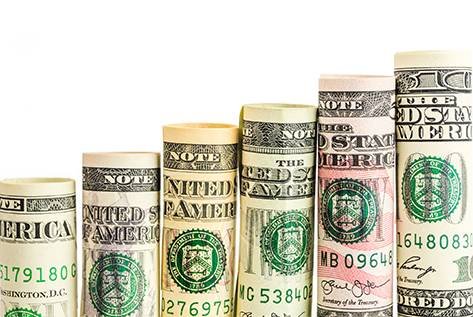The US dollar has been gaining momentum in the lead-up to the Federal Reserve’s upcoming meeting, as investors anticipate potential announcements regarding monetary policy. As global markets brace for what could be significant moves from the Fed, the greenback has strengthened against major currencies, including the euro and the British pound. This uptick in the dollar comes amid concerns about inflationary pressures and the economic outlook, as the Fed weighs its options for addressing these challenges.
The strengthening of the US dollar is largely driven by expectations that the Federal Reserve may take more aggressive actions to manage inflation. Investors are closely monitoring any signals from the Fed regarding future interest rate hikes, as these could have a substantial impact on currency markets. A rate hike would likely make the US dollar more attractive to investors seeking higher returns, further boosting its value against other currencies.
For Nigerian businesses and investors, the rise in the US dollar presents both challenges and opportunities. As the dollar strengthens, it becomes more expensive for Nigerian companies to import goods priced in dollars. This could lead to higher costs for businesses that rely on US-based suppliers, impacting sectors such as technology, oil, and manufacturing. Nigerian consumers may also face higher prices for imported goods, contributing to inflationary pressures in the local market.
However, a stronger US dollar could also benefit Nigerian exporters who deal with international markets, especially those who are paid in dollars. As the dollar appreciates, Nigerian businesses exporting goods or services to the US and other dollar-denominated economies could see increased profits when converting payments back into Naira.
For Nigerians investing in the global markets, the rising value of the US dollar may present both opportunities and risks. Those holding investments in US assets, such as stocks or bonds, may see their portfolio values increase as the dollar strengthens. On the other hand, Nigerians holding assets in other currencies may experience a decline in the value of their investments when converted into Naira.
The overall impact of the US dollar’s climb will depend largely on how the Federal Reserve responds to the current economic conditions. If the Fed announces rate hikes or other measures to combat inflation, the dollar could continue its ascent, potentially altering the dynamics of international trade and investment.
As the Fed’s meeting approaches, Nigerian businesses, investors, and consumers alike will need to monitor developments closely to understand how the dollar’s movements could affect their operations and financial decisions.
